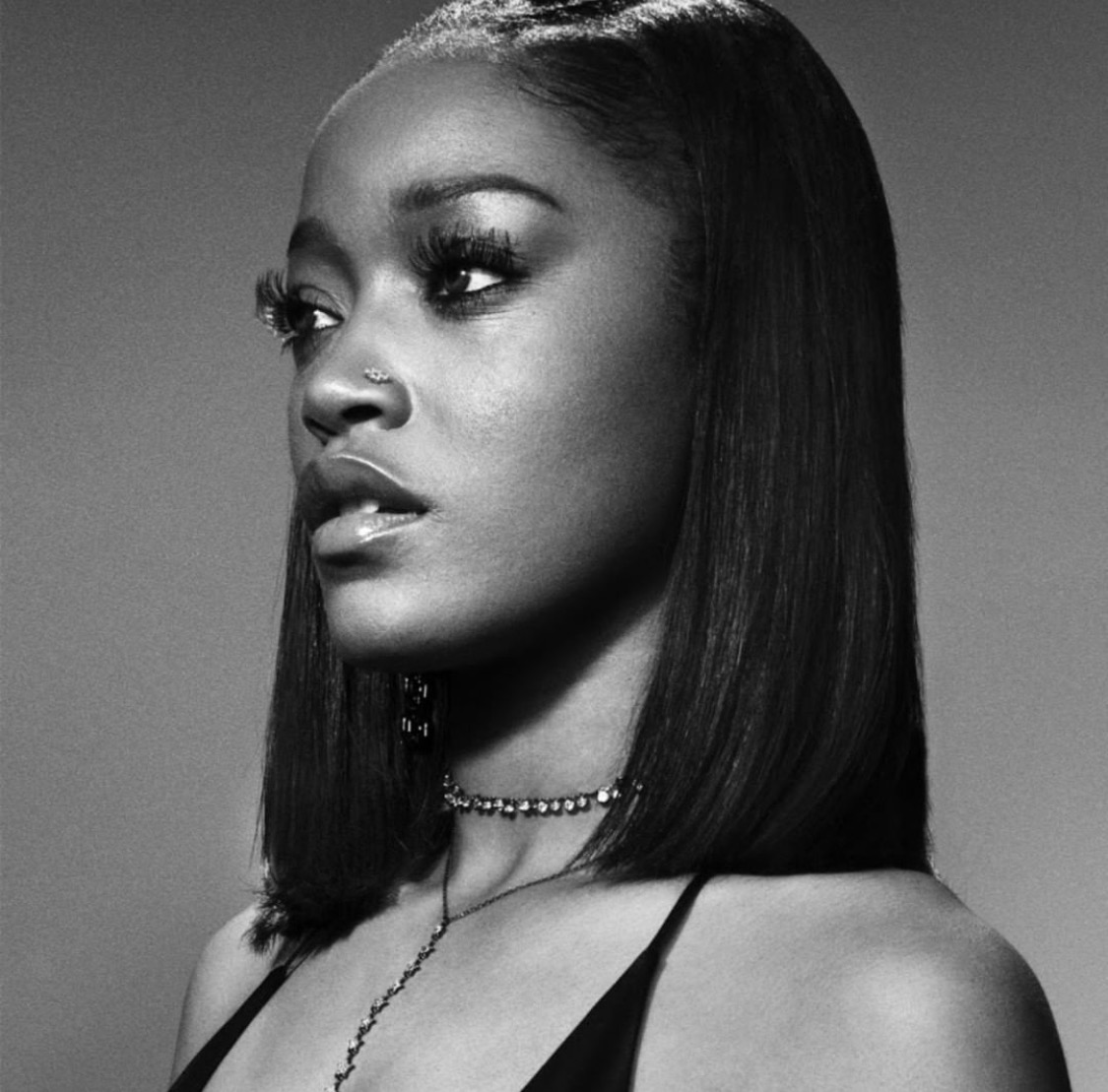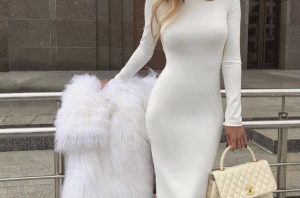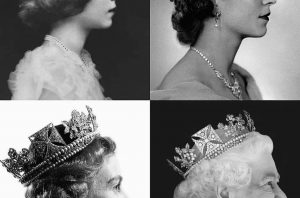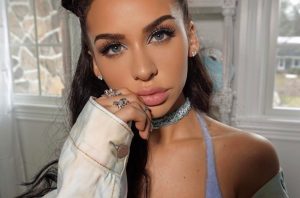For years Palmer’s proved to be a shape-shifter, flexing her many talents to provide what the culture needed at the time: A beacon for the representation of Black girls as the lead actress in 17 of the 21 films in which she’s appeared; a broadcaster of her generation as the youngest-ever host of a TV talk show, Just Keke; the viral maven behind social media series “That’s the Gag” and “Southern Belles”; fashion It girl; author; Leonardo DiCaprio superfan—the list goes on.
In recent years, that list has expanded to include business efforts, as she’s quietly helmed a production company, Watch Out for Keke Productions, and self-funded record label, Big Bosses Entertainment, the latter her attempt to undo years without creative control over her music career after having been signed to three different labels since the start of her career.
While Big Bosses is still in somewhat of a developmental stage, Palmer’s got a clear mission for it. “I want [the artists I sign] to feel like they’ve found a good home that understands them,” she says over the phone from her native Illinois. “So it’s definitely not about signing anybody I can put my hands on. It’s about really building a relationship and creating a movement in a group of people where it’s like, we’re all connected.”
Naturally, her reinvigorated emphasis on music means she’s been working on her own; the follow-up to her 2007 debut album, So Uncool, and 2016 EP, Lauren, is set to drop at the top of the new year, with an accompanying tour to follow. Ever the multi-tasker, she’ll still be seen on Star and Berlin Station, and appears in the upcoming Lionsgate film #Twominutesoffame.
Here, we discuss the value of creative ownership, her executive producer credit on Pimp, and her long-awaited sophomore album.
Your age seems to have never been a limitation for you, considering what you’ve accomplished so early on. What was your thought process as a pre-teen embarking into the industry?
I don’t think I ever really looked at it as a career. I think all my actions have been motivated simply by my love [for entertaining] and what I could offer, or what I felt was needed, what would be fun for me to watch. That’s what drove me.
You were signed to three different record labels before starting Big Bosses Entertainment. Was there something specific about that last deal that made you realize you wanted to go out on your own?
I realized that, with the people I was working with in a traditional sense [at the label], it was always this kind of dictatorship. At the end of the day, either I was going to figure out how to do it on my own or I was going to keep being put in these situations. I was just pushed to that place of understanding that nothing gets done unless you do it yourself. But I was kind of afraid to do it myself. I thought I needed more help or to have some outside sources, but I would’ve been reaching out to people to assist me in something that I can do on my own. I’ve been doing other things on my own when it comes to other aspects of my career, like through digital [platforms]. That’s when I felt like I had to get away from those relationships in music and do things on my own, even if I didn’t have all this “help.” It was better than having to feel like people are telling me what to do.
It’s definitely the norm for people to have ownership over their creative efforts now, like how you mentioned you do on your social media.
My generation has an opportunity to break the boundaries by going directly to their audience with their art. It doesn’t have to be contingent upon a relationship or anything political. It just has to do with you being able to create the content and sustain the consistency. That gave me a lot of freedom, having come from the old way of entering the industry—auditions, an agent; the old school way of doing it. [Social media] was a breath of fresh air because it was an additional place I could create and do my thing, in my own way. I’m in control.
I’m sure there are still advantages that you have, becoming independent after having been signed. What were some takeaways you got from those labels?
That not everything is about a hit. It’s about you taking your time, figuring out your voice and what song best is representative of you. And it’s going to continue to evolve over time. Labels are always equating talent based off of record sales, but The Supremes’ first album wasn’t a hit. Everybody’s first thing isn’t a hit. It takes time for your audience to develop and for them to understand who you are.
How do you plan to empower the artists signed to Big Bosses Entertainment to do that?
My best bet would be to encourage them to really be patient with themselves, try new things, not be afraid to put something out there, and not always think it has to be perfect. I’ll be that encouraging voice that I didn’t always have when it came to music. I felt like I never had that help that I expected to have when I got signed. I thought I would be encouraged, my voice would be encouraged and my vision would be encouraged, as opposed to, “This isn’t good” or, “That’s not how it should be.”
It’s disheartening there are still labels that don’t give their artists more freedom, considering how many have skyrocketed after going independent or simply having more creative control.
I think they’re a bit scared. When you think about the [people at] record labels, they’re money people. But with somebody like Rihanna, she always had Jay Z, who’s a businessman but also a creative, so he understands that aspect more than maybe other people that you would be working with at labels. They’re mostly thinking about, “How do I make sense of these numbers to the boss of the boss of the boss?” That means that a lot of heart is drowned out. Numbers aren’t always going to add up to what somebody is making in influence. Sometimes it takes a second for that influence to create the same impact in numbers. But [people at] record labels don’t generally take that time, so they try to save their jobs more than they do to save the culture, or protect the music. They end up not really giving their artists the support they need or allowing them to take the chances they need to take. When it comes to music—when it comes to art—you really have to be risky. You can’t only put money towards sure things. But it’s what the music industry—and a little bit of the acting world—has become.
Switching gears, what can you tell me about your new music?
I have an album that I’m very excited about, coming in January. I just did three visuals so I have that coming as well. And I’ll be going on tour. That’s something that I really was focused on doing in 2019, getting an opportunity to go out and see my fans. A lot of times I give them new music but they never get to see me in action. A lot of that has to do with my acting schedule and other projects. I also could’ve put more emphasis on that part of it all.
Thematically and sonically, will it be along the lines of “Better to Have Loved”—more R&B-focused?
R&B will always be an influence on my music, but I think R&B has so many subversions of itself. R&B is now often mixed with something else. I did the album in Atlanta so you’re going to hear a lot of hip-hop and trap sounds, but it’s going to be very melodic and soulful because that’s the part of me that can’t go anywhere.
Have you been behind the camera for those visuals?
Always. When it comes to visuals I have my hand in them because, if not, I’m not usually happy with the outcome. That’s another thing I suggest to artists. It doesn’t mean micromanaging and not trusting other people. During whatever you’re creating make sure, every step of the way, that you’re happy. Don’t be afraid to speak up. Don’t be afraid to make a change because when it comes down to editing and putting it out, you don’t want to have had to waste money and realize it’s not what you wanted it to be.
Is it challenging to focus on so many moving parts, especially for Pimp, with you acting and executive producing?
No, because that’s where my mind space always was. I always was looking at the overview of things. I always was caring about the full picture. All those things were important to me and I think I always had an interest in them, so eventually it got to the point where I was directing and producing. I always cared not just about my performance but everybody’s as well, because we all elevate each other and everyone elevates the film. I don’t want just me to shine, I want the film or TV show to shine
Having been so involved with Pimp, what’s your response to people who claim that the portrayal of this Black character as a pimp is stereotypical?
To me it’s not stereotypical in any regard! I’ve never seen a movie like this before. I’ve seen movies with pimps, or with people who were impoverished or had intense lives, but I’ve never seen a female pimp, let alone a lesbian. This story has never been told, with this female as the lead. That’s the thing that kind of annoys me with people at times. Do you want inclusivity or not? Because this person exists. It’s not putting a negative light on a Black person. Without telling the end, it’s a beautiful story about how you can overcome, but you have to do things differently. It’s about how love is the most important thing in life—not money, not society’s idea of what game is. We all go through the journey of trying to come of age and not fall into the same pitfalls that our parents fell in, and trying to rebirth an energy that can create a new destiny for the generations that come after us. And that’s really what the story of Wednesday is. It’s just being told through the eyes of a very underserved people. Usually you will see this character being a supporting role, or a very small bit part. She never gets to tell her story. But I know many people like Wednesday. So for me it’s not stereotypical at all because this person is never really given the light. When you hear pimp stories, they’re usually glorified and beautiful and glamorous. You’ll see drug-dealing stories that are dark, but pimp stories are usually glorified. That’s really not the truth.
Do you have plans to explore business opportunities outside of music and acting?
I definitely would love to branch my gifts outside of entertainment. I would love to be involved with other things—definitely community. I want to figure out how I can be a real asset there and use my platform to raise awareness on necessary issues, and find the parties that can help follow through with those changes.
By Forbes





